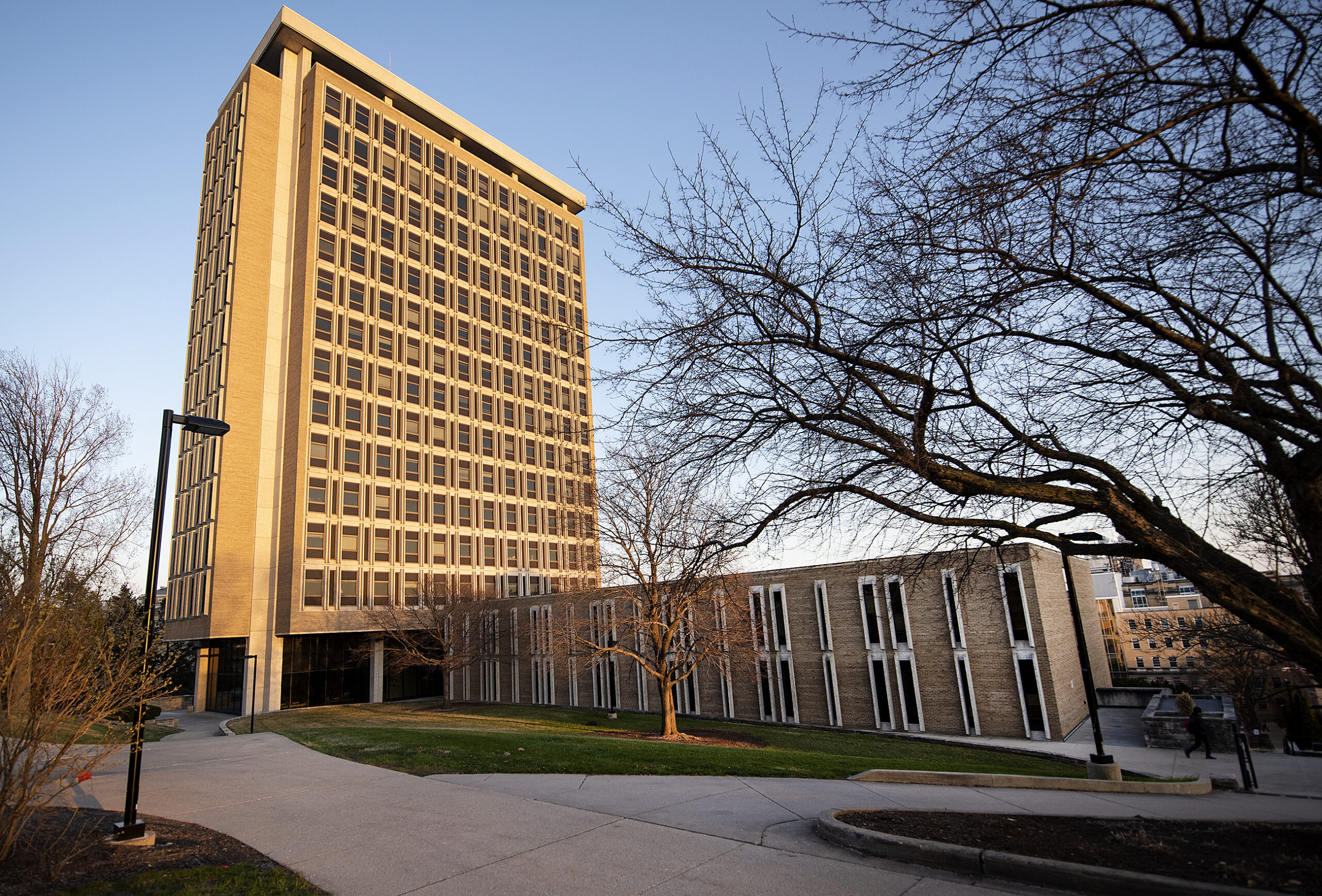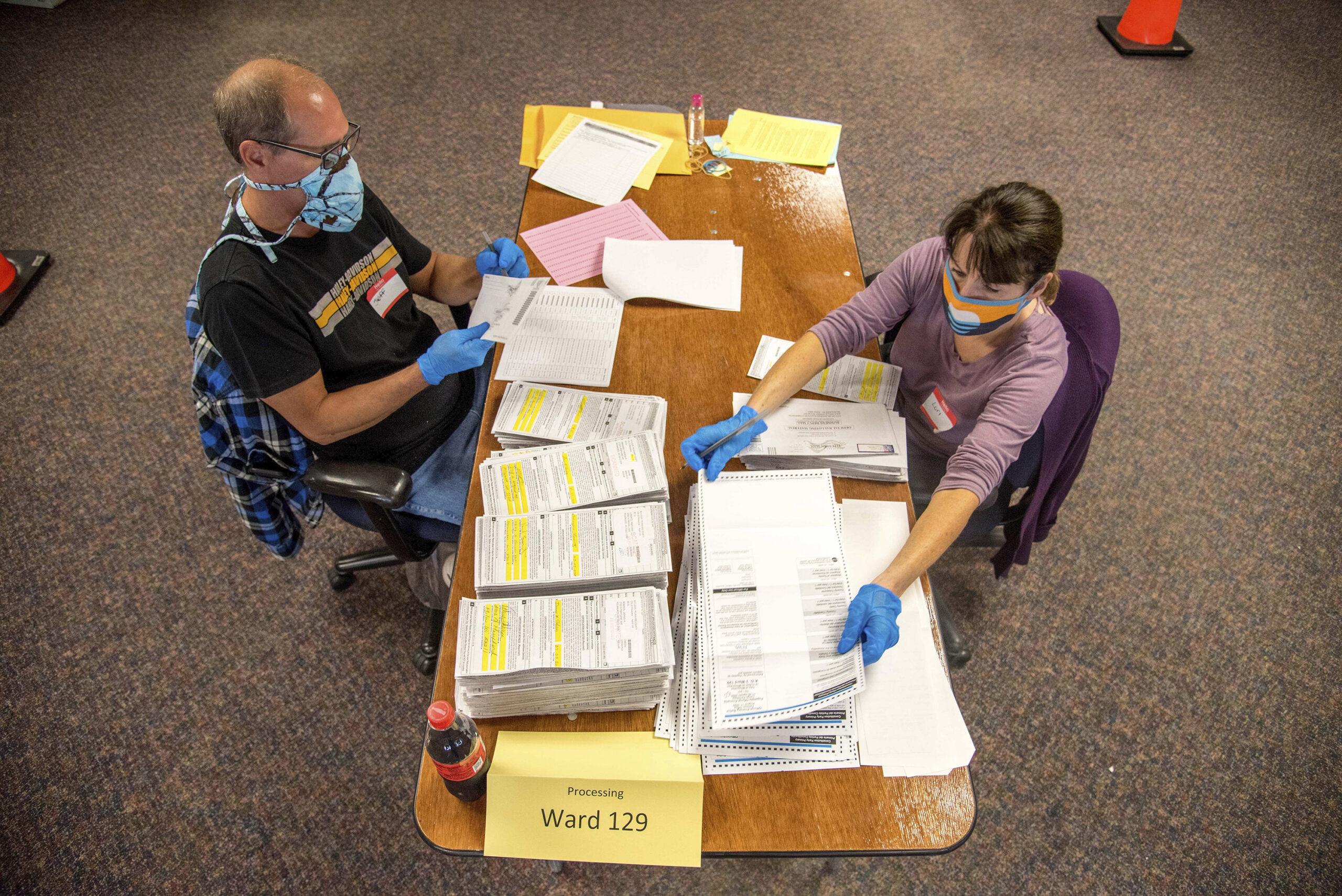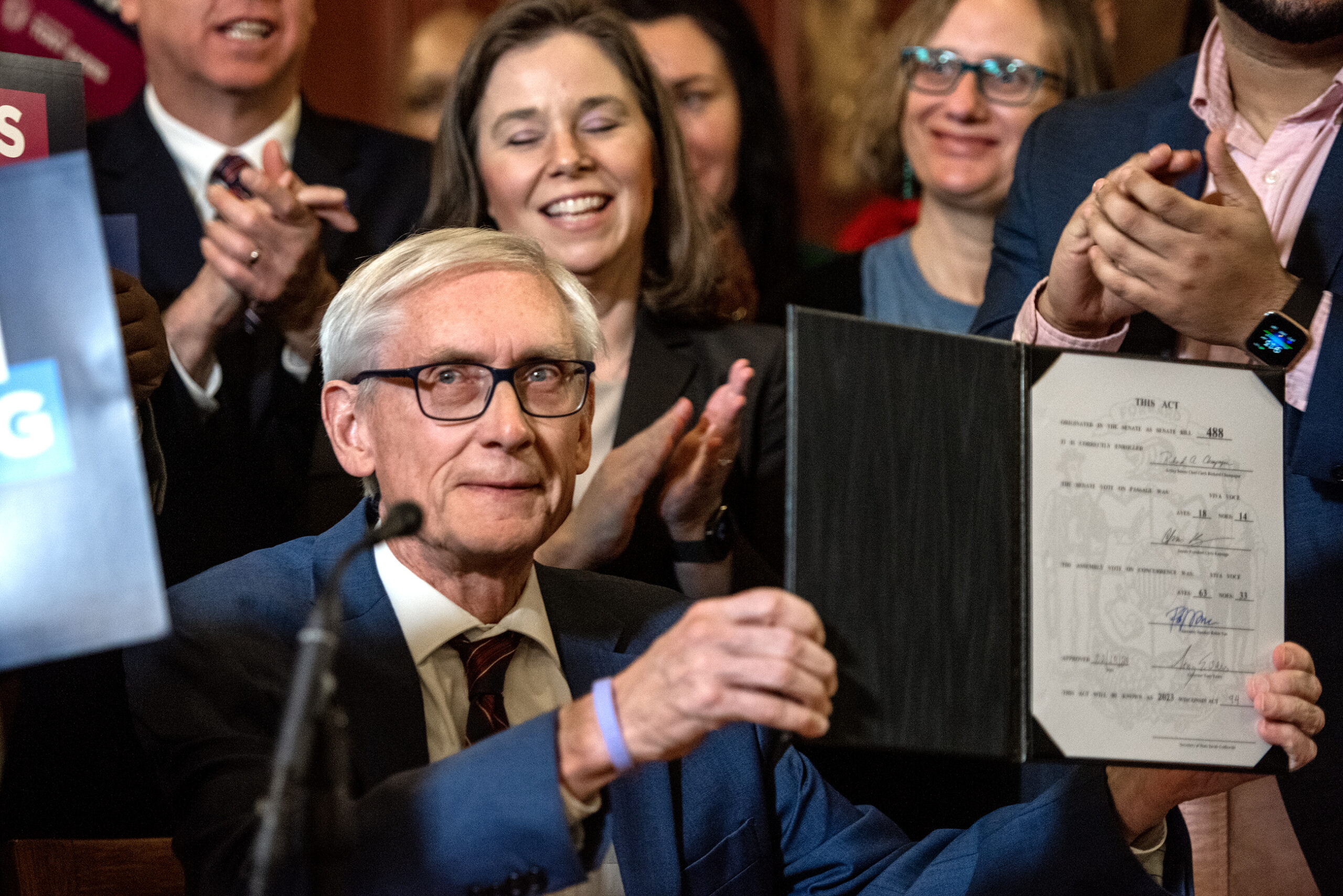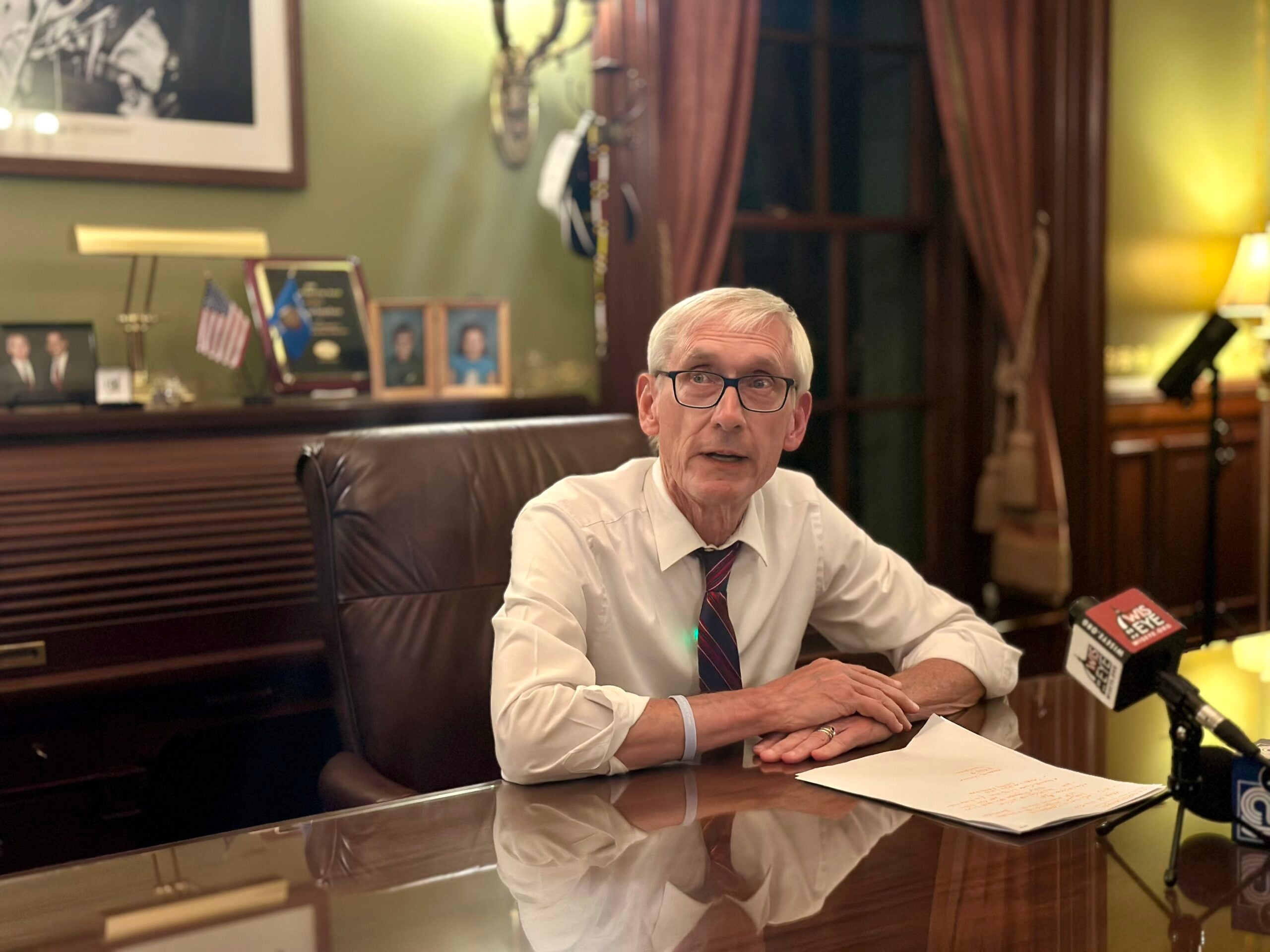On what was likely their final legislative session day of 2024, Republican state Senators passed dozens of measures Tuesday, including one that would restrict the rights of transgender athletes to take part in female sports teams.
Senators also fired eight more people appointed by Gov. Tony Evers, continuing a trend in state government not seen in Wisconsin in decades.
Other measures passed by Republicans would sidestep Evers, amending the state Constitution on issues ranging from the governor’s veto powers to his ability to spend federal funds.
News with a little more humanity
WPR’s “Wisconsin Today” newsletter keeps you connected to the state you love without feeling overwhelmed. No paywall. No agenda. No corporate filter.
While GOP lawmakers could always return to Madison if they choose to, leaders have given every indication that Tuesday was their last regular session day of the year.
Here’s a roundup of what they passed.
Bill on transgender athletes headed to governor’s desk, and an Evers veto
A Republican bill that would ban students who were born biologically male from playing on K-12 female sports teams received final approval in the GOP-controlled Wisconsin Legislature. Democrats and LGBTQ advocates say the bill targets transgender youth, and Evers has promised a veto.
The legislation would establish separate men’s, women’s and co-ed categories for teams and explicitly ban biologically male students from playing on any team designed for women.
Republicans have said the Legislature must step in to protect women’s sports, arguing the biological differences between male and female bodies create an unfair situation. During the Senate’s session Tuesday, Sen. Mark Spreitzer, D-Beloit, said Republicans have been repeatedly demonizing transgender youth in Wisconsin.
“How many times does Gov. Evers have to veto or promise to veto a bill like this or others like it that target transgender Wisconsinites before you get the message that this will never become law in Wisconsin?” Spreitzer said.
The bill has support from religious and conservative groups and is opposed by school associations, social workers, school psychologists, the State Bar of Wisconsin and the American Civil Liberties Union of Wisconsin.
Evers has already vetoed a Republican bill that would ban gender-affirming care for minors in Wisconsin. He’s also promised a veto of the K-12 sports bill, which passed the Senate on by a vote of 21-11. Sen. Joan Ballweg, R-Markesan, joined all Democrats in voting against the legislation.

GOP-controlled state Senate fires UW regents for the first time in more than 30 years
Republicans fired eight of Evers’ appointees to various state boards Tuesday, including the the first Universities of Wisconsin Board of Regents members to be rejected by the Senate since 1991.
While Republicans didn’t cite any reasons for the dismissals, Democrats noted the regents who were fired — venture capitalist John Miller and former Democratic state representative Dana Wachs — voted against a high-profile deal brokered between Republican Assembly Speaker Robin Vos and UW leaders. That agreement released pre-approved funding for UW pay raises and building projects in exchange for new limits on campus diversity, equity and inclusion programs, known as DEI.
State Sen. La Tonya Johnson, D-Milwaukee, said “it says something” about the GOP-controlled Legislature when they withhold funding and fire regents over efforts to make minority students more welcome on college campuses.
“I’m not standing up here to make y’all look bad,” Johnson said. “I swear I’m not because you’re doing that yourself.”
Senate Minority Leader Dianne Hesselbein, D-Middleton, called the move a “disgrace” that is part of the GOP’s ongoing efforts to defund higher education, which includes withholding $32 million in UW funding in order to extract DEI concessions.
“They held up $32 million in operations funding, pay increases for nearly half of all state employees and hundreds of millions for necessary capital improvements, like the UW-Madison engineering building, because of their misguided views of diversity, equity and inclusion,” Hesselbein said.
Immediately after the firings, Evers blasted Republicans in a statement announcing two new appointments to the UW Board of Regents.
A written statement issued later by Senate Majority Leader Devin LeMahieu, R-Oostburg, said “appointees must prove that they are qualified, capable, and that they will follow the law in their capacities.
“The Senate takes its role in the advice and consent process seriously,” LeMahieu said.
The six other Evers appointees rejected by Republican senators Tuesday were serving on boards including the Wisconsin Judicial Commission, Deferred Compensation Board and the Council on Domestic Abuse.
One appointee rejected by Republicans, Mildred Gonzales, had received a unanimous, bipartisan recommendation by the Senate’s Mental Health, Substance Abuse Prevention, Children and Families Committee.
When asked by Democrats to explain the vote against Gonzales, Republicans declined to answer.
Republicans have now rejected a total of 22 Ever appointees since he took office.

GOP senators pass proposed constitutional amendments on race, and federal funds
Contained within the laundry list of bills considered during the Senate floor session were three GOP resolutions proposing amendments to the Wisconsin Constitution. They would:
- Ban governments, including schools, from giving preferential treatment to current and prospective employees on the basis of race, sex or national origin.
- Weaken the governor’s partial veto powers to “create or increase any tax or fee.”
- Remove the governor’s ability to decide how to spend federal grant funding and give that power to state lawmakers.
Republicans introduced the amendment on veto powers after Evers used a partial veto of the state budget to boost school funding for the next 400 years.
They’ve also been upset with how Evers has spent COVID-19 stimulus funds coming to Wisconsin through a variety of federal laws spanning both the Trump and Biden administrations.
The proposed amendments on DEI and partial vetoes would need to pass the full Legislature again next session. The federal funding proposal already passed the Legislature twice and will go before voters in November.
Senate refuses to take up bill allowing early processing of absentee ballots
As the Senate quickly worked through dozens of bills Tuesday, one notable absence was a bipartisan effort to give poll workers a one-day head start when processing absentee ballots at what are known as “central count” locations.
The idea used to be widely supported by both Republicans and Democrats until former President Donald Trump made repeated false claims about the 2020 election in Wisconsin being stolen from him.
Under current law, absentee ballots cannot be processed until Election Day. For large cities like Milwaukee, that takes time, and has led to swings in unofficial statewide results reported on election night.
While the measure previously passed the state Assembly, last month LeMahieu told WISN-TV that the bill was likely dead in the Senate. Indeed, the bill was left off of the Senate’s final agenda.

Senate passes judicial security package spurred by increased threats to Wisconsin judges
The Senate gave the Legislature’s final stamp of approval Tuesday to three bills that were introduced in response to an uptick of threats of violence against judges, justices and their families. If signed by Evers, the bills would enact a variety of protections:
- Judges would be able to request that government agencies not publish personal information about them or their families. Internet “data brokers” like Google would also be prohibited from selling that data following such a request.
- Protesting outside a judges home “with intent to interfere with, obstruct or impede” the administration of justice would become a crime. Those found guilty would face a fine of up to $10,000 and up to nine months in jail.
- Documents called judicial security profiles kept by local law enforcement, which include a judge’s home floor plans, medical history and whether there’s a security system, would no longer be publicly available.
When the bills were introduced in January, Wisconsin Supreme Court Chief Justice Annette Ziegler cited data showing there had been 142 threats against judges and justices over the past year.
Senate passes bans on college DEI ‘loyalty pledges’ and vaccination requirements
In addition to firing two of the UW regents who opposed the Vos DEI deal, the Senate also passed a bill that would ban colleges from requiring students and staff to sign what GOP lawmakers claim are diversity, equity and inclusion “loyalty pledges.” The bill would also allow students or faculty members to sue if they feel they were denied admission or promotion for not pledging to promote DEI.
Written testimony from state Sen. Steve Nass, R-Whitewater, referred to DEI as a “totalitarian cloak” that is “descending upon our universities from coast to coast.”
Testimony from the Universities of Wisconsin claims the system of campuses “do not require any systemwide written or spoken loyalty pledge to any political ideology or movement for any employee or student.”
A spokesperson for Evers has said he will veto the bill, which passed the Senate on a party line 22-10 vote.
The senate also passed a bill along party lines that would force colleges and universities to waive vaccination requirements for students who object to the shots on the basis of health, religion or personal conviction. Republicans claim the change would not end vaccine requirements, but would preserve a student’s “bodily autonomy” by allowing the opt-out option.
Written testimony from the Wisconsin Technical College District Boards Association, Wisconsin Association of Independent Colleges and Universities and the Universities of Wisconsin say their campuses don’t have blanket vaccination requirements, but the shots are required for some students completing degrees while working in healthcare settings.

Other bills clear finish line as Senate wraps up
The Senate passed several other pieces of legislation during the chamber’s likely final floor session day. They would:
- Require the Wisconsin Department or Revenue to work with the Minnesota Department of Revenue to study the effects of bringing back tax reciprocity. It’s the first step toward reviving a deal, which ended in 2010, aimed at simplifying income tax filings for tens of thousands of residents who cross the Wisconsin-Minnesota border to work.
- Block the Wisconsin Department of Natural Resources from banning, baiting and feeding deer, following detection of a positive case of chronic wasting disease, or CWD, at a nearby deer farm.
- Prevent local governments from creating ordinances aimed at regulating concentrated animal feeding operations, or CAFOS, along with other types of facilities. It would also bar local governments from setting animal welfare standards that are more strict than state law.
- Require school boards to create lesson plans aimed at teaching students about Hmong American and Asian American history.
- Require disclosures if political advertising is made using artificial intelligence.
Wisconsin Public Radio, © Copyright 2026, Board of Regents of the University of Wisconsin System and Wisconsin Educational Communications Board.







